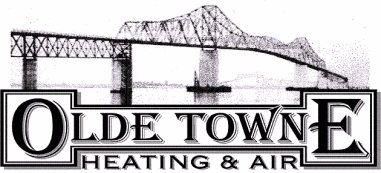Completing the search for your first home is an exhilarating experience. You’re likely juggling a dozen things or more about making the right choice. We believe that gaining insight into your future HVAC system is essential. The property’s HVAC system represents a substantial investment and potential source of long-term costs, which is why due diligence should be a top priority for first-time homebuyers.
In the following guide, we’ll outline seven tips for learning everything you can about a home’s heating and cooling setup. And if you want a more in-depth opinion from the pros, feel free to call Olde Towne Heating & Air. Our experienced team can help you compare your options with industry insights you won’t find elsewhere.
1. What HVAC System Are You Working With?
Start by identifying what kind of HVAC system the home features. Furnaces generally last longer compared to air conditioners, and relatively new types of HVAC products like heat pumps feature average life spans that are even longer. Tracking down the make and specific model ensures you have a much better sense of how much routine maintenance it might need.
2. How Old Is the Current HVAC System?
Another good idea is to find out how old the HVAC system is when you’re considering a potential new home. In general, HVAC systems should survive for around 10-12 years. Knowing when it was installed helps you plan for possible repair needs or considerations if it might eventually stop working. Older systems may be more vulnerable to problems, so fiscal planning for a replacement unit might be needed faster than expected.
3. Does the System Have a Warranty?
Be sure to check the HVAC system is covered by a warranty. If it is, this can lower maintenance costs. HVAC warranties should take care of parts and labor, but it’s important to note that details will vary. Make sure you go over any terms that aren’t familiar to make sure you fully understand your coverage and the likelihood of out-of-pocket costs.
4. Has the System Ever Been Professionally Serviced or Maintained?
Next, examine the maintenance history of the HVAC system, if such information is accessible. This service history can reveal if the system constantly broke down or how often a tune-up was scheduled. You should at least try to track down a history of key tasks such as changing the air filter, which means it enjoyed more regularly scheduled tune-ups.
5. Do You Know Its Energy Efficiency Ratings?
Finding a home that features an HVAC system with strong energy efficiency means lower utility bills and less of an impact on the environment. Locate the seasonal energy efficiency ratio (SEER) ratings for air conditioning and the annual fuel utilization efficiency (AFUE) for furnaces. Higher SEER ratings mean better cooling across the entire season, while strong AFUE ratings illustrate that the fuel is more effectively burned for useable heat.
6. Can You Spot Trouble After Completing an Informal Inspection?
Even if you don’t have heating and cooling expertise, it’s still a good idea to check out the HVAC system yourself. Look for signs of problems that haven’t been mentioned by the seller. This can mean bizarre noises, stubborn patches of the house that are too hot or cold and attempts at concealing any visible damage.
7. Is an Experienced HVAC Technician Available to Help?
If you’re unsure about the current state of the HVAC system, it’s never a bad idea to get input from certified HVAC professionals. They can spot things you might not, including refrigerant leaks, bad electrical connections or damaged ductwork.
A Call with Olde Towne Heating & Air Helps Take the Stress Out of Your Home-Buying Journey
Choosing your first home should be thrilling, and Olde Towne Heating & Air will do everything possible to ensure that doesn’t change. Get in touch with us at 843-485-0967. We can go over the details about how our HVAC services help make this process smoother, giving you what you need to make an offer with confidence.
